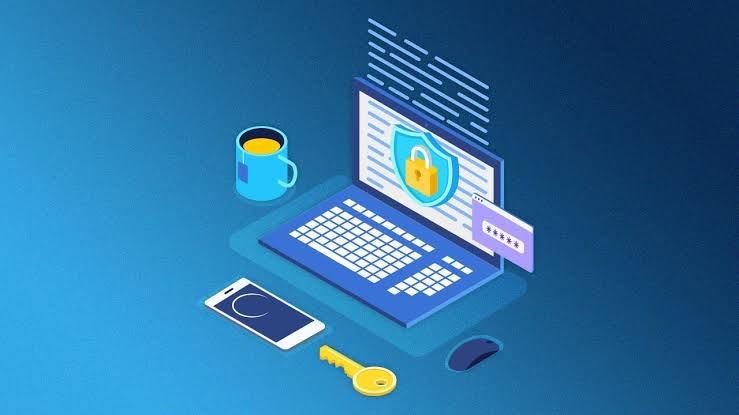Business data is worth millions, and leaders should also be willing to spend a fraction of that amount for its protection. To protect this data, security protocols should be implemented throughout an organization’s network, applications, and access points.
As per recent statistics, internet users worldwide witnessed approximately 52 million data breaches in the second quarter of 2022. When compared to the previous quarter, data breaches have decreased. However, such an alarming figure still emphasizes the importance of implementing trusted data security solutions.
What is Data Security?
Data security refers to the multiple practices organizations implement to protect digital information. Data security protocols protect information from various factors, such as unauthorized access and corruption. Along with protecting digital information, data security practices encompass the protection of on-premises hardware used to store data as well.
In addition to protecting information from various external factors such as cyberattacks and ransomware, data security protocols provide protection and access authorization for internal factors as well. These security protocols ensure that no unauthorized user from within the organization can access restricted data.
Organizations can use various methods to implement data security protocols, including data encryption, anti-phishing software, or identity and access management solutions.
Importance of Data Security
Data is one of the most valuable assets of an organization, and ensuring its protection can save a business from hefty financial expenses. Effectively implemented data security protocols can also save an organization from reputation damage and loss of trust, which they receive in the aftermath of a data breach.
In addition to protective benefits, some data security solutions also allow businesses to enable digital transformation within their organizations and comply with legal regulations. These security solutions also help businesses guard themselves against internal threats and everyday human errors. Lastly, businesses using data security protocols can reassure their customers about their data security and develop a trustworthy bond with them.
Elements and Types of Data Security
Data security works based on three core elements that serve as a framework for data protection. These elements include:
- Confidentiality – ensures that the data is protected from unauthorized access
- Integrity – ensures that data is not vulnerable to any unjustified changes.
- Availability- ensures that data is accessible and available when required.
The various types of data security include:
Encryption
Data encryption uses algorithms to scramble the data to an unreadable point. Only those with an encryption key can assess the data and gain insights. It ensures that the data has no value and can cause no loss in the event of a breach.
Masking
This ensures data protection by masking any personal information that can be used for identifying an individual. In addition to data protection, masking allows organizations to develop applications or train employees using real data.
Erasure
Erasure is a practice that works similarly to standard data-wiping protocols. It overwrites the information with random binary data and ensures that the sensitive information is unrecoverable.
Resiliency
Data resiliency refers to an organization’s ability to recover from a cyberattack or any unexpected change to ensure business continuity.
Data Security Solutions
Organizations can choose to implement various types of solutions to ensure data protection and security. Some of these solutions include:
Discovery and Classification
Before implementing security solutions, it’s important to identify sensitive information. Discover and Classification solutions allow organizations to locate sensitive information as per their industry standards or customer requirements.
Data Loss Prevention
DLP software solutions analyze organizational data for identifying sensitive information and implement data protection policies as well. In addition, the solutions also provide real-time alerts if any anomalies or malicious activities in sensitive data are identified.
Identity and Access Management Solutions
IAM solutions work based on Zero Trust identity principles and restrict any unauthorized access. These solutions allow organizations to allocate the required level of access to users for optimal security.
In addition to this, IAM solutions allow businesses to enable digital transformation by providing a secure and seamless experience when sharing access to resources and applications.
Lastly, these solutions help ensure regulatory compliance by allowing organizations to manage access certifications.
Vulnerability Assessment Solutions
These solutions help identify various vulnerabilities, such as weak passwords and misconfiguration. In addition to this, these solutions can also identify data sources that are at risk, resulting in the effective deployment of security protocols.
End Point Security Systems
An endpoint is in constant communication with a network to which it’s connected and, therefore, can be under constant threat as well. However, using security solutions such as antiviruses, anti-spyware, pop-up blockers, and firewalls can stop any endpoint vulnerabilities from being exploited.
Intrusion Detection and Prevention Solutions
These solutions can analyze network traffic and identify malicious activity. In addition to this, these solutions can also examine event logs and provide alerts when a security policy is violated. Along with detecting any malicious activities, these systems can terminate a session if potential threats are detected.
SIEM Solutions
Security Information and Event Management (SIEM) solutions monitor and analyze security event logs in real-time. Along with monitoring security logs for applications and devices, these solutions can also monitor the security logs of network infrastructures and other systems as well.
Final Thoughts
Protecting data is an essential practice for businesses regardless of their size. Organizations can use various types of data protection methods, such as data encryption and masking, to increase security standards. Data security solutions allow businesses to restrict unauthorized access, monitor and analyze malicious activity, and secure network endpoints.
Ensuring data protection not only saves businesses from the financial costs that occur in the event of a data breach but also saves their reputation from being damaged.


